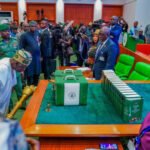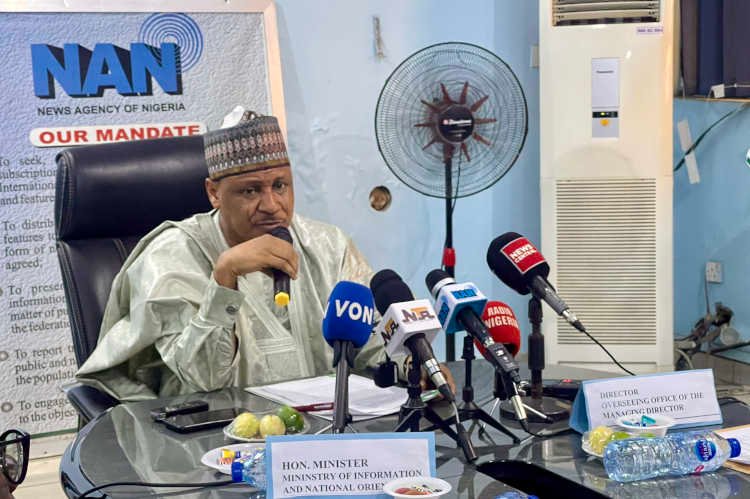Nigeria has initiated a fresh move to limit citizens’ rights to freedom of expression, and there are valid reasons why this move is unacceptable.
Development Diaries reports that a bill that seeks to repeal and reenact the National Broadcasting Commission (NBC) Act 2004 and includes social media regulation has been submitted to the country’s National Assembly.
It is understood that the Director-General of the NBC, Balarabe Ilelah, in a meeting with the Minister of Information and National Orientation, Mohammed Idris, referred to social media as a ‘monster’ while stressing the need for the bill.
Section 39 of the 1999 constitution provides that every person shall be entitled to freedom of expression, including freedom to hold opinions and to receive and impart information without interference.
Also, freedom of expression is recognised as a fundamental human right and enshrined in the Universal Declaration of Human Rights, the International Covenant on Civil and Political Rights and other global pacts.
Millions of Nigerians now have access to the internet, and they use it to discuss a variety of topics on social media and other digital platforms.
However, it is understandable that as much as social media comes with gains, it also comes with potential challenges, which can be effectively addressed without limiting citizens’ rights to freedom of expression.
As we argued in this 2022 post, social media in itself is not a problem, but the attitude of people in using social media platforms calls for concern.
There are people who share information without proper verification, without authentication and tweet without thinking.
People need to be aware of the source of information they are consuming and this is where fact-checking comes in. The Nigerian government needs to do more in the area of education, teaching citizens how to verify news before sharing it on social media instead of violating their freedom of expression rights.
These rights enable Nigerians to voice their opinions, share ideas, and engage in meaningful discourse, fostering diversity and inclusivity.
Development Diaries calls on the Ministry of Information and National Orientation to immediately withdraw this bill and instead develop a plan to use the same social media to counter misinformation and educate citizens.
The government, through the ministry, must also partner with relevant non-governmental organisations (NGOs) and journalists to eliminate or curb misinformation on social media platforms.
We also call on the information ministry to set up a fact-checking unit, whose sole purpose would be to counter false information with verifiable evidence, and from time to time, this unit should be engaging Nigerians and other social media users on related matters.
These are measures the government can adopt in order to deal with the problem of misinformation or false news rather than considering limiting citizens’ right to freedom of expression.
Photo source: FMINO







